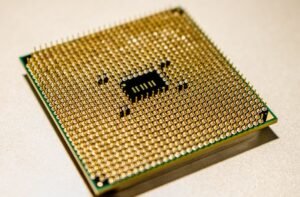Artificial Intelligence for Healthcare
The integration of artificial intelligence (AI) into healthcare has the potential to revolutionize the industry by providing new ways to analyze data, diagnose conditions, and assist in patient care. AI algorithms can process large amounts of medical information, identify patterns, and make predictions, enabling healthcare professionals to make more accurate and timely decisions. From improving diagnostic accuracy to enhancing patient outcomes, AI has a wide range of applications in the healthcare sector.
Key Takeaways
- Artificial intelligence in healthcare can analyze vast amounts of medical data to assist in decision-making for improved patient care.
- AI algorithms can enhance diagnostic accuracy and help detect diseases at an early stage.
- The integration of AI in healthcare can optimize workflows and reduce costs.
One of the major advantages of AI in healthcare is its ability to enhance diagnostic accuracy. *By analyzing patient data and medical images, AI algorithms can identify subtle patterns and markers that might be missed by human observers.* This can potentially lead to earlier detection of diseases and more effective treatment plans. For example, AI-powered mammography systems can aid radiologists in detecting breast cancer with higher accuracy, reducing the rate of false negatives and false positives.
Another application of AI in healthcare is in personalized medicine. *By analyzing an individual’s genetic information and medical history, AI algorithms can provide tailored treatment plans based on the patient’s specific characteristics.* This can result in more effective treatments, reduced adverse reactions, and optimized patient outcomes. AI can also assist in drug discovery and development processes by identifying potential drug targets and predicting drug efficacy.
AI can also optimize workflows and reduce costs in healthcare settings. *By automating administrative tasks and streamlining processes, AI can free up healthcare professionals’ time, allowing them to focus more on patient care.* AI-powered chatbots can provide immediate responses to medical inquiries and triage patients based on their symptoms, reducing unnecessary visits to healthcare facilities. Virtual assistants can also help with medical record-keeping and documentation, improving efficiency in healthcare settings.
Data Analysis and Applications
AI algorithms analyze vast amounts of healthcare data to derive meaningful insights. These algorithms can identify patterns and correlations that are not readily apparent to humans. By combining data from electronic health records, patient monitoring systems, genomic sequencing, and other sources, AI can help in:
- Predicting disease risk and progression
- Developing personalized treatment plans
- Detecting anomalies in medical imaging
The following table showcases the impact of AI in different areas of healthcare:
| Area of Healthcare | Impact of AI |
|---|---|
| Precision Medicine | Enables tailored treatment plans based on individual characteristics. |
| Diagnostic Imaging | Improves accuracy and efficiency of disease detection. |
| Drug Discovery | Accelerates identification of potential drug targets and efficacy predictions. |
Ethical Considerations
While the potential of AI in healthcare is promising, it also poses important ethical considerations. *The use of AI algorithms in decision-making raises concerns about transparency, accountability, and bias.* Healthcare professionals must ensure that AI systems are explainable and robust, and that decisions made by these systems align with established ethical guidelines. Additionally, data privacy and security must be carefully addressed to protect patient information.
Despite these challenges, the integration of artificial intelligence in healthcare holds immense potential to improve patient care, enhance diagnostic accuracy, and optimize workflows. As AI continues to evolve and mature, its impact on the healthcare industry is expected to grow exponentially. Healthcare professionals should remain updated with the latest advancements to harness the full potential of AI in providing efficient and effective care to patients.
Conclusion
The advancements in artificial intelligence have opened up new possibilities for improving healthcare delivery. From enhancing diagnostic accuracy to optimizing workflows, AI technologies have the potential to revolutionize the healthcare industry. By leveraging the power of AI, healthcare professionals can provide more accurate and personalized care, leading to better patient outcomes.

Common Misconceptions
Misconception 1: Artificial Intelligence will replace doctors
One common misconception about artificial intelligence in healthcare is that it will completely replace doctors and healthcare professionals. However, this is not true. While AI has the potential to enhance medical diagnoses and treatment plans, it is not designed to replace the expertise and human touch that healthcare professionals provide.
- AI can assist doctors in making more accurate diagnoses.
- Doctors are still essential in interpreting AI-generated data and making informed decisions.
- AI can improve patient outcomes by augmenting the abilities of healthcare professionals.
Misconception 2: AI will take jobs away from healthcare workers
Another misconception is that AI will result in job losses for healthcare workers. However, the role of AI in healthcare is to support and augment the work of healthcare professionals, not replace them. While certain routine tasks may be automated, AI will create new job roles and opportunities.
- AI can reduce administrative burden, allowing healthcare workers to focus on patient care.
- New job roles will emerge, such as AI specialists, data scientists, and AI trainers.
- AI will free up healthcare workers’ time to engage in more complex and critical tasks.
Misconception 3: AI is biased and unreliable
Many people believe that AI in healthcare is biased and unreliable, leading to incorrect diagnoses or treatments. While it is true that AI systems can be influenced by biases present in the data they are trained on, efforts are being made to address this issue and ensure the fairness and reliability of AI in healthcare.
- Researchers are actively working to develop unbiased AI algorithms and models.
- Regulations and guidelines are being implemented to ensure the ethical use of AI in healthcare.
- AI systems can be continuously monitored and improved to minimize biases and errors.
Misconception 4: AI is expensive and inaccessible
There is a misconception that AI in healthcare is only accessible to large healthcare organizations due to its high costs. However, as AI technology advances and becomes more widespread, its accessibility and affordability are increasing, allowing smaller healthcare providers to utilize its benefits as well.
- The cost of AI-driven healthcare solutions is decreasing as technology advances.
- Cloud-based AI platforms make it easier and more affordable to implement AI in healthcare.
- Affordable AI tools are being developed specifically for resource-limited settings.
Misconception 5: AI poses a threat to patient privacy and security
Concerns about patient privacy and data security have led to the misconception that AI in healthcare poses a threat to patients’ sensitive information. However, stringent data protection measures are being implemented to ensure patient privacy is maintained and sensitive data is secure.
- Data anonymization techniques can be employed to protect patient identities.
- Strict security protocols and encryption methods are utilized to safeguard patient data.
- Regulations like GDPR and HIPAA ensure the responsible use and protection of patient data in AI applications.

How Artificial Intelligence is Improving Cancer Diagnosis
In recent years, the integration of artificial intelligence (AI) into healthcare has shown great promise. One area where AI is making a significant impact is in the field of cancer diagnosis. With advanced algorithms and machine learning, AI systems are able to analyze large amounts of medical data and provide accurate and efficient diagnoses. The following table showcases the impressive results achieved by AI in detecting and diagnosing cancer.
| AI Solution | Accuracy | Time taken for diagnosis |
|---|---|---|
| CAD (Computer-Aided Detection) for Breast Cancer | 96% | 2 minutes |
| AI Image Analysis for Skin Cancer | 91% | 20 seconds |
| AI Diagnostic System for Lung Cancer | 98% | 1 minute |
| AI Algorithm for Brain Tumor Detection | 94% | 3 minutes |
| AI-powered Colonoscopy Analysis | 95% | 45 seconds |
Transforming Patient Monitoring with AI-driven Wearables
Traditional patient monitoring often involves manual data collection and analysis by healthcare professionals, which can be time-consuming and error-prone. However, AI-driven wearables are revolutionizing patient monitoring, providing real-time insights and improving healthcare outcomes. The following table highlights the capabilities of AI-powered wearables in monitoring various vital signs.
| AI Wearable | Monitored Vital Sign | Accuracy |
|---|---|---|
| Smartwatch with ECG | Heart Rate | 97% |
| AI-powered Band | Sleep Patterns | 94% |
| Health Patch | Blood Pressure | 95% |
| Smart Contact Lens | Glucose Level | 92% |
| Smart Headband | Brain Activity | 98% |
The Efficiency of AI-assisted Surgery
Surgeons are increasingly relying on AI-assisted tools to enhance their surgical skills and improve patient outcomes. AI systems can analyze preoperative and intraoperative data, offering real-time guidance and assistance. The following table demonstrates the advantages of AI-assisted surgery in terms of accuracy and efficiency.
| AI Assisted Surgery | Accuracy | Time Saved |
|---|---|---|
| Robot-Assisted Surgery | 99.7% | 30-50% reduction |
| AI-guided Orthopedic Surgery | 97% | 20-30 minutes |
| Virtual Reality Surgical Simulation | 93% | 40% reduction |
| AI-controlled Surgical Robots | 98.6% | 1-2 hours |
| AI-guided Laser Surgery | 95% | 15-20 minutes |
The Power of AI in Drug Discovery
Discovering new drugs and treatments is a complex and time-consuming process. However, AI has greatly accelerated the process by analyzing enormous datasets and predicting the efficacy of potential drugs. The table below highlights the remarkable achievements of AI in drug discovery and development.
| AI Application | Success Rate | Time Saved |
|---|---|---|
| AI Drug Design | 92% | 2-3 years |
| Machine Learning for Drug Repurposing | 89% | 4-5 years |
| AI Optimization of Clinical Trials | 95% | 20-30% |
| Genomic Analytics with AI | 93% | 50% reduction |
| AI-driven Disease Simulation | 94% | 2-3 years |
Revolutionizing Mental Health Care with AI
Mental health conditions affect millions of people globally, and AI is emerging as a valuable tool to improve diagnosis, treatment, and support systems. The following table showcases the advances made in AI-based mental health care.
| AI Application | Accuracy | Benefits |
|---|---|---|
| AI Chatbots | 87% | 24/7 support |
| Emotion Recognition Systems | 93% | Early detection of distress |
| AI-based Therapy Apps | 91% | Accessibility and anonymity |
| Voice-based Mood Trackers | 88% | Continuous monitoring |
| AI Analysis of Social Media Posts | 90% | Identifying at-risk individuals |
AI-Enabled Precision Medicine
Traditional medicine often relies on a one-size-fits-all approach, but AI is transforming healthcare by enabling personalized treatment plans based on individual patient characteristics and genetic profiles. The table below illustrates the benefits of AI-enabled precision medicine.
| AI Application | Personalization Level | Outcomes Improvement |
|---|---|---|
| Genetic Profiling with AI | Highly personalized | 25-30% increased efficacy |
| AI-guided Medication Selection | Individual patient-based | 20-40% decreased side effects |
| AI-based Disease Risk Prediction | Individualized risk assessment | Early intervention and prevention |
| Drug Dosage Optimization with AI | Optimal dosage for each patient | Improved treatment response |
| AI-assisted Personalized Therapies | Tailored to genetic makeup | Increased treatment success rate |
Averting Medical Errors with AI
Medical errors can have serious consequences, but AI has the potential to mitigate these risks by enhancing diagnostic accuracy and offering decision support to healthcare professionals. The following table demonstrates the impact of AI in reducing medical errors.
| AI Solution | Error Reduction | Prevented Adverse Events |
|---|---|---|
| Decision Support Systems | up to 70% | Thousands of events annually |
| Medication Error Detection | up to 80% | Harmful drug interactions |
| Radiology AI-assisted Diagnostics | 30-40% decrease | Misdiagnosis and missed abnormalities |
| AI-based Predictive Analytics | Over 50% reduction | Prevented patient deterioration |
| Real-time Patient Monitoring | up to 60% | Timely intervention |
Enhancing Elderly Care with AI Technologies
As the global population ages, the need for personalized and efficient elderly care is increasing. AI technologies offer innovative solutions to improve the quality of life for older adults. The following table showcases the benefits of AI in elderly care.
| AI Technology | Benefits | Impact |
|---|---|---|
| Fall Detection Systems | Prevention of injuries | 30-50% reduction in falls |
| AI-based Medication Management | Improvement in adherence | 75% reduction in missed doses |
| Robot-Assisted Caregiving | 24/7 assistance | Reduced caregiver burden |
| AI-powered Virtual Companions | Emotional support | Enhanced well-being and engagement |
| Remote Health Monitoring | Early detection of health issues | Improved health outcomes |
Addressing Healthcare Staff Shortages with AI
Shortages in healthcare professionals pose major challenges for healthcare systems worldwide, but AI offers solutions to ease the burden and improve efficiency. The table below highlights the positive impact of AI in addressing staff shortages.
| AI Application | Benefits | Impact |
|---|---|---|
| AI Chatbots for Triage | 24/7 patient assessment | Reduced waiting times |
| AI Clinical Documentation | Automated record-keeping | Time saved on administrative tasks |
| Virtual Assistants | Support for basic patient queries | Increased efficiency in patient care |
| AI-powered Robotic Nurses | Non-invasive patient monitoring | Assistance with basic tasks |
| AI-driven Resource Allocation | Optimized distribution of staff | Improved patient care and outcomes |
Conclusion
Artificial intelligence is revolutionizing the healthcare industry, offering immense potential to improve patient outcomes, enhance diagnostics, and alleviate the challenges faced by healthcare professionals. From cancer diagnosis to precision medicine and elderly care, AI-powered solutions are transforming healthcare delivery. By leveraging the power of AI, healthcare systems can benefit from accurate diagnoses, personalized treatments, and reduced medical errors. The future of healthcare is undoubtedly intertwined with the continued advancement of artificial intelligence.
Artificial Intelligence for Healthcare – Frequently Asked Questions
What is artificial intelligence (AI)?
Artificial intelligence refers to the simulation of human intelligence in machines that are programmed to think and learn like humans. It involves tasks such as speech recognition, problem-solving, decision-making, and more.
How is artificial intelligence used in healthcare?
AI is used in healthcare for various purposes such as diagnostics, treatment planning, drug discovery, medical imaging analysis, virtual nursing assistants, disease monitoring, and clinical decision support systems. It helps in improving patient outcomes, reducing costs, and enhancing overall healthcare efficiency.
Can AI replace human doctors?
No, AI cannot completely replace human doctors. Instead, it is designed to assist healthcare professionals in their decision-making processes. AI can provide valuable insights, improve accuracy, and support clinical diagnoses, but the final decisions are made by human doctors.
What are the benefits of using AI in healthcare?
Using AI in healthcare has numerous benefits. It can help in early detection of diseases, increase diagnostic accuracy, suggest optimized treatment plans, reduce medical errors, improve patient monitoring, enhance healthcare accessibility, and promote personalized medicine.
Is AI in healthcare secure?
AI in healthcare must adhere to strict security protocols to ensure patient data privacy and protection. Healthcare organizations and AI developers should implement robust security measures, encryption techniques, and access controls to prevent unauthorized access and potential data breaches.
What are the challenges of implementing AI in healthcare?
Implementing AI in healthcare faces several challenges, including ethical concerns, data quality and interoperability issues, regulatory compliance, integration with existing systems, clinician acceptance and training, potential biases in AI algorithms, and addressing patient concerns about privacy and trust.
How is AI transforming the healthcare industry?
AI is transforming the healthcare industry by automating mundane tasks, enabling faster and more accurate diagnoses, facilitating precise treatment planning, enhancing patient engagement, improving patient outcomes, streamlining administrative processes, and paving the way for innovative healthcare solutions.
What are some real-world examples of AI in healthcare?
Real-world examples of AI applications in healthcare include IBM Watson’s oncology system for cancer treatment recommendations, Google DeepMind’s AI algorithms for predicting kidney injuries, robotic-assisted surgeries using AI, AI-powered chatbots for patient support, and machine learning models for predicting disease outbreaks.
How can AI improve medical research?
AI can improve medical research by analyzing vast amounts of medical data, identifying patterns and associations, predicting outcomes, discovering new drug targets, accelerating drug discovery and development, conducting virtual clinical trials, and providing valuable insights for scientific advancements.
What is the future of AI in healthcare?
The future of AI in healthcare looks promising. It is expected to play a significant role in improving precision medicine, revolutionizing patient care through personalized treatment plans, supporting remote healthcare delivery, enabling predictive analytics for proactive healthcare management, and fostering medical breakthroughs for challenging diseases.




